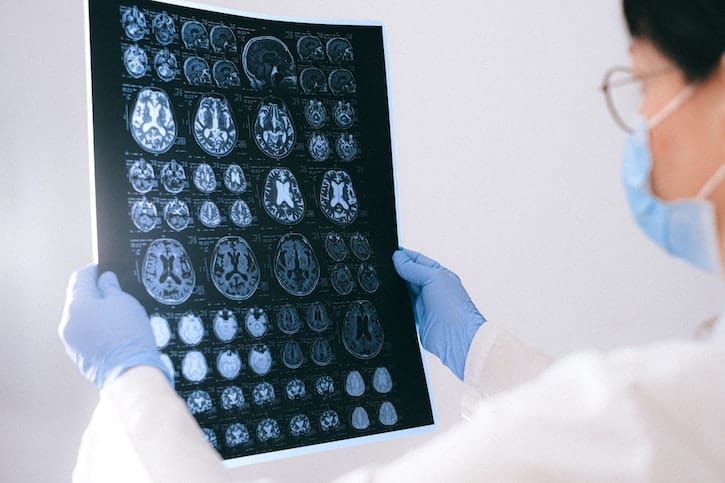In the modern world, addiction in the prison system is shifting in focus from being repressed and stigmatised to a focus on rehabilitation and this disease being treated in the appropriate manner. [1]
However, this has not always been the case.
For example, in less recent times having an addiction (also known as a substance use disorder) could mean that your time in prison or jail was far more negative – sometimes being subject to harsher treatment, lack of care, and a general worsening of their overall condition.
Despite security, scans and searches, illicit drugs are still smuggled into prisons, meaning that inmates have access to substances, some of which they may have previously been addicted to, and some that they may have developed an addiction to as a result of their time behind bars.
This blog post aims to explore addiction behind bars, analyse the treatment programs in place, and offer steps that can be taken to work toward an addiction-free lifestyle in the future.
To find out everything you need to know about treating addiction in jails and prisons, call us on 0800 140 4690

In most cases, if an individual is known to have a specific addiction to a substance or substances, they will be offered some form of care when entering the prison system.
Their addiction will be carefully assessed by a medical professional, including the severity of their addiction, the length of time that they have been struggling with addiction, and if they have experienced any form of withdrawal symptoms when trying to reduce the quantity of the substance they are consuming.
If this is not the case, then it is imperative that the individual requests this.
Especially in the UK, it is a right that any individual can access the care they need – even if this is extensive physical and mental treatment for a previous addiction.

While in prison or jail, an individual may be offered a number of different treatment options.
In general, these will follow the 3 steps of rehabilitation, but these may differ slightly when considering different prison systems and the available support in place.
The three stages of rehabilitation are as follows:
To find out everything you need to know about treating addiction in jails and prisons, call us on 0800 140 4690

Mandatory Drug Testing (MDT) refers to the essential urine tests (and possibly others, i.e blood tests, saliva tests, hair tests) carried out within prisons.
Introduced in 1996, the MDT program was introduced in the UK with the aim of reducing drug use in prison, but – by the own words of those who tested its success – also to punish those who were detected with drugs in their system. [2]
The program itself does mention the referral to suitable care and support offered to those who struggle with drug use in prison, but the extent of this is dubious.
However, the program has also been linked to an increase in inmates’ recognition of which substances can or cannot be detected within a short time period – meaning that some substances, such as heroin, may be rising in popularity due to its short period of detection within the urine sample.

The effectiveness of drug rehabilitation within prison varies depending on the prison itself, its location, its resources, and its approach to drug use within its inmates’ prison time.
One study, for example, explored the different opinions on drug use in prisons, showing that staff and inmates had vastly differing views on the reason why an individual would turn to substance use. [3]
The staff generally explained drug use in prison due to a difficult upbringing and life trajectory, whereas inmates themselves described it as a way to alleviate the struggles of prison life, part of social life, a route to higher ‘respect’ within the system, and a way to deviate against the authority above them.
To find out everything you need to know about treating addiction in jails and prisons, call us on 0800 140 4690

In most cases, the level of care and drug rehabilitation that inmates can access while incarcerated depends on the views of those who run the prison – either on a day-to-day basis or in terms of the higher authorities e.g., governing bodies.
This is because of the financial elements involved in supplying drug rehabilitation to those in the prison system. [4]
This means that although drug rehab in the prison system may yield lower levels of recidivism, the cost of this is not seen as viable to those in charge of the finances of these operations.
However, where care is provided, it may be on a far more general basis, meaning that the forms of care that these individuals receive are not specialised or tailored to an individual – one of the key aspects of effective treatments.

There have been countless studies, pieces of research, and investigations into the mechanisms and neurobiology of addiction, making it hard to determine the exact brain regions involved (especially when considering different types of addiction i.e., cannabis addiction, heroin addiction), but there are some common factors.
The most common and key factor is the effect drug-taking behaviour on the reward centre of the brain. [5]
When consuming a substance, the reward centre of the brain is activated, meaning that individuals will receive many positive signals, therefore making it more likely that they will engage in this behaviour again.
The most common of these signals include a heightened sense of euphoria, relaxation, positive emotions and calmness.
To find out everything you need to know about treating addiction in jails and prisons, call us on 0800 140 4690

Many drug rehab programs within the prison system include some form of group therapy or community-based recovery system such as Alcoholics Anonymous.
This means that individuals are taught to be supportive of one another, rather than receiving specific or tailored care themselves.
Although group therapy can be effective in almost all cases of addiction recovery, this is often due to the way that these individuals react to and respect those around them – something which may be challenging in prison or jail.
However, when implemented correctly, group therapy sessions such as those found in prison can boost rapport amongst group members, improve their social networks, and provide individuals with the opportunity to share their experiences with those in a similar position.

There is a lot of support for in-prison drug rehabilitation schemes, but there is also some research that shows how it can cause additional issues, outside of those that have already been caused by an addiction or substance use disorder alone.
One study, conducted in 2018, [6] found that white participants were more likely to be accepting of the ‘addict’ label and be integrative of the support received, whereas black participants were more likely to reject the label, sometimes defying the treatment offered altogether.
This demonstrates the importance of a correctly implemented rehabilitation program while incarcerated – something which can be incredibly challenging in the modern world.
To find out everything you need to know about treating addiction in jails and prisons, call us on 0800 140 4690

Despite the issues that drug rehabilitation and its associated treatment programs may have in the prison system, it is vital that it occurs.
Any individual seeking support and rehabilitation for an addiction should be offered options, no matter their social or cultural background, and regardless of whether they have been imprisoned or not.
In some instances, it may be argued that addiction rehabilitation is relatively more important for inmates, as it often contributes strongly toward their rehabilitation in general, meaning that they may be more or less likely to re-offend after release depending on their drug addiction treatment.

In general, drug use and crime are often highly correlated, (7) though this is not always a direct reflection of these individual’s behaviours, and other factors may be at play.
For example, the reasons why an individual may turn to substance abuse in the first place can often also have a large impact on their behaviours later in life.
Addiction can be triggered for many reasons e.g., a stressful work/school life, issues within an individual’s social life, or a genetic predisposition.
This means that an individual may also turn to crime in some of these situations, as well.
However, it is also debated that the direct effects of some substances may also increase the chance of law-breaking behaviours.
Alcohol, for example, can cause some individuals to become increasingly agitated or aggressive, perhaps increasing the likelihood of them committing violent crimes or taking part in harassment.
To find out everything you need to know about treating addiction in jails and prisons, call us on 0800 140 4690

Despite the links between addiction and committing criminal activities, it is nonetheless important that these individuals seek the support they need, as soon as possible.
With further drug consumption in prison, individuals may put themselves in far more dangerous and life-risking situations.
This means that individuals should be offered support, regular checkups, and the offer of support groups such as Alcoholics Anonymous [8] where available.
Ongoing treatment is also of high priority, as it may be easier to fall back into an addictive lifestyle within prison, making it harder to recover in the future, and increasing the impact of the negative consequences of substance abuse.

In most cases, drug rehabilitation in prison will follow the three stages of rehab: detoxification, therapy, and aftercare.
It is important that each of these stages are tailored toward each individual, not as a ‘one size fits all’ approach.
With the detoxification stage, for example, this process should be specialised toward the specific addiction, substance, and the individual’s history.
The same applies to both rehabilitation and aftercare, as well.
Treatment for drug issues relating to different substances should be carefully considered, taking into account any individual’s history with addiction and the effects of previous attempts to recover.
This should be also be focused on the individual’s mental health, as well as their physical health initially.
To find out everything you need to know about treating addiction in jails and prisons, call us on 0800 140 4690

One of the first steps to be taken in the drug rehabilitation programs within prison is to improve access to addiction treatment, not just in the UK but across the world.
This can be achieved by something as simple as community-based treatment such as group therapy sessions offered in prison, but they can also be far more complex and specialised, depending on the prison’s access to facilities and resources.
In all cases, individuals shouldbe safe to make their needs, history, and specific addiction(s) clear to those who will be in charge of their health.
This is the responsibility of the prison once an individual is incarcerated, so ensuring that every individual has an equal opportunity to access care is of utmost importance.

To learn more about addiction and rehabilitation – either in the prison system or outside of it – take a look at any of Rehab 4 Addiction’s information pages covering these topics, as well as those that cover more specific topics and examples.
If you have any questions or would like to enquire about starting the process of rehabilitation, get in touch with our friendly, professional, and confidential-trained staff today by calling our addiction support line on 0800 140 4690.